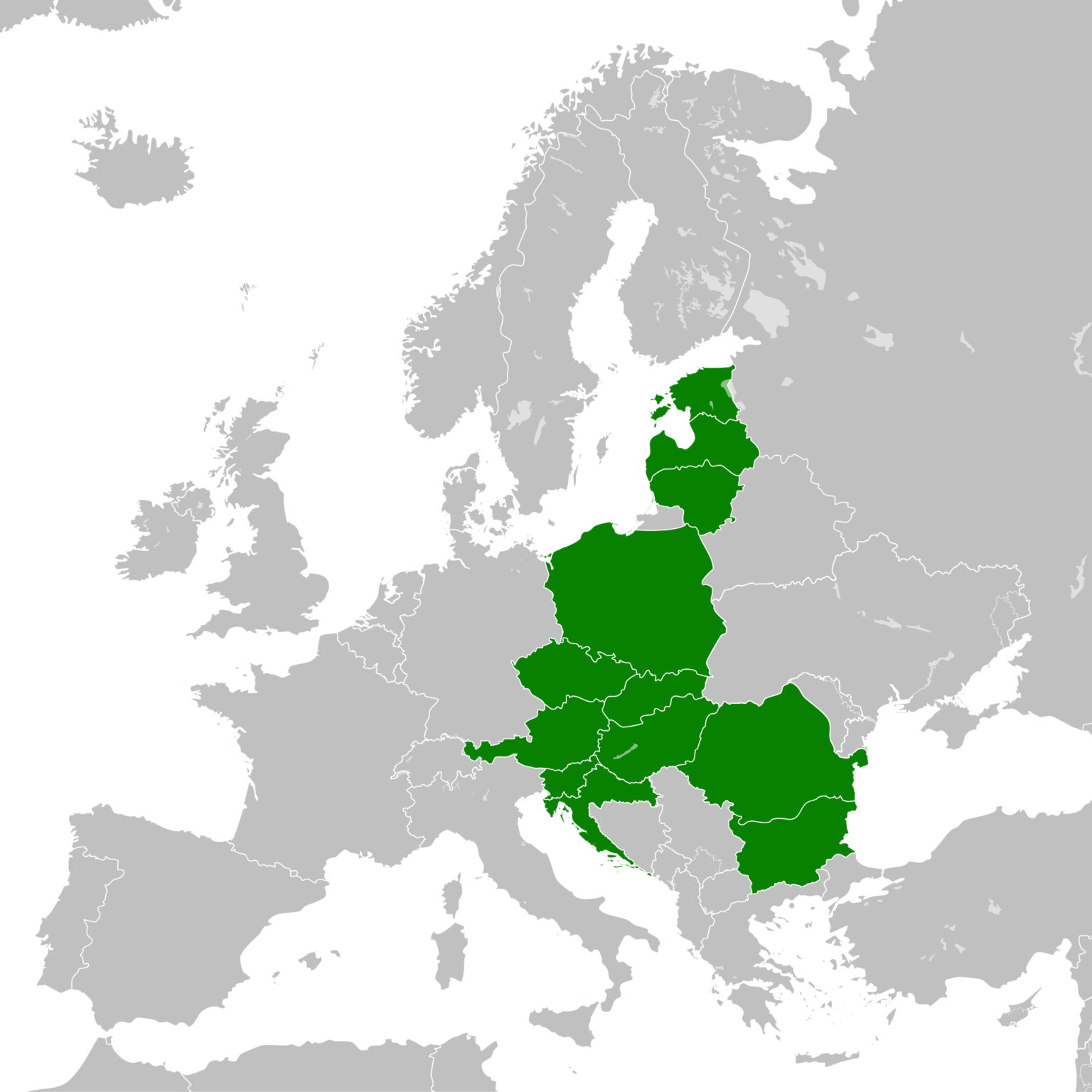OPINIONS
Date: 3 October 2022 Author: Rainhard Kloucek
The Three Seas Initiative is not one of the well-known formats of regional cooperation in Europe. Only experts and some interested people know about the various organizations that exist in the European Union, but also in the combination of EU countries and non-EU countries. It is enough to give a few examples: Baltic cooperation established in 1994, Nordic-Baltic cooperation in 1992, Visegrad Group in 1991, Black Sea Economic Cooperation in 1992, Cooperation Processes in Southeastern Europe in 1996, Strategy EU for the Danube Region in 2010, or the Three Seas Initiative in 2016.

Another organization that can be named is the CEI Central European Initiative, which was established in cooperation between Italy, Austria, Hungary and the Socialist Federal Republic of Yugoslavia (SFRY) in Budapest on November 11 1989, just two days after the fall of the Berlin Wall. If you were to ask people on the street if they knew of one of these Co-ops, many would have no idea, some would say they had heard of the Visegrad Group, and some experts might mention additional co-operation formats. Most of these cooperations are groups of experts at the diplomatic level.
Originally composed to concentrate the efforts of three countries: Czechoslovakia (Czech Republic and Slovakia after 1993), Poland and Hungary for EU and NATO membership, the Visegrad almost fell asleep as soon as these countries achieved both goals. With the so-called migrant crisis in 2015, they got a wake-up call because these countries wanted to preserve their national identities. Now Viktor Orbans is flirting with Vladimir Putin, after the Russian invasion of Ukraine on February 24, 2022, it seems to mean the end of this format, which for several interest groups was the hope that it could become a format of closer cooperation between Central European countries. The idea of such cooperation in “Mitteleuropa” is interesting, but Visegrad as a concept of cooperation between nation states at the intergovernmental level is far from any idea of ”Mitteleuropa” or Central Europe.
The Three Seas Initiative combines much more of this background than any other format of cooperation with the countries of this region. Most of these 13 countries have historical connections. Looking back to the kingdom of the Czech king Ottokar Pszemysl, to the Polish-Lithuanian kingdom or to the Habsburg Empire, you will come across many historical and cultural connections. In the second half of the 20th century, the totalitarian Soviet Union controlled most of these countries. Croatia and Slovenia were not part of the USSR, but of Yugoslavia, which was also ruled by communist ideology. Only the Republic of Austria did not belong to this “evil empire”, as the late US President Ronald Regean once called the Soviet empire. Forced into neutrality, Austria was part of a free Europe. Mentioning these historical aspects does not mean that we should fall into some sentimental feelings. That would be the wrong approach. Historical and cultural ties are important for understanding events. And we must develop our future.
First of all, Vladimir Putin’s aggressive policy emphasizes the security aspect in the region. The historical experience of the Three Seas Initiative with Russian governments has also made people sensitive to threats coming from Moscow. It is therefore also logical that it is the countries directly bordering Russia that are currently among the strongest supporters of Ukraine. While the West does not believe that imperialism is still the dominant factor in Russian politics, the East is very familiar with these ideas. Here they are aware that only a common and strong European position can stop Russian expansionism.
Logically, this understanding of European security policy should support the demand that the European Union develop a truly European approach to security, defense and foreign policy.
It is precisely on this issue of foreign and security policy that European sovereignty is needed. Sovereignty in this particular case means the ability to act and shape. In terms of potential, a European policy would bring clear added value here compared to a purely state policy. More precisely: European foreign policy here is not only the coordination of the foreign policy of the 27 Member States by the High Representative for the Common Foreign and Security Policy (who is also one of the vice-presidents of the European Commission), but where individual countries, for example, on important issues such as human rights in China, may block the European position, but the EU foreign ministry with the foreign minister (or foreign minister) at the helm.
Support from civil society will also be crucial. Party politics tends to defend existing positions of power. This is especially evident in the so-called national interests, such as Hungary’s policy, which, despite threats from Russia, has further tightened its pact with Moscow on energy issues. This dependence then leads to Budapest undermining European security interests in Moscow’s interest.
Therefore, greater cooperation between civil society, think tanks, etc. will be necessary to strengthen common European interests in the countries of the Three Seas Initiative. Common historical memory and common cultural roots create very good conditions for this. Let’s use the potential.
Financed by the National Institute of Freedom – Civil Society Development Center as part of the Government Program Civic Initiatives Fund NEWFIO for the years 2021-2030.
Support Us
If content prepared by Warsaw Institute team is useful for you, please support our actions. Donations from private persons are necessary for the continuation of our mission.
All texts published by the Warsaw Institute Foundation may be disseminated on the condition that their origin is credited. Images may not be used without permission.

















